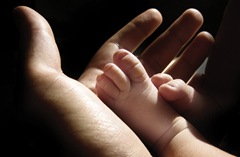Regulating reproduction
 Legislation for the “complex, profound and divisive” world of assisted human reproduction will be initiated in 2010.
Legislation for the “complex, profound and divisive” world of assisted human reproduction will be initiated in 2010.
Since 1999, when Senator Mary Henry proposed a Private Members Bill aimed at regulating the growing number of fertility clinics and the subsequent formation of the Commission on Assisted Human Reproduction (CAHR), the Government has avoided regulating the industry for fear of an abortion debate. It has also been waiting until the Supreme Court ruled on controversial fertility cases.
Fertility clinics currently operate under the guidelines of the Irish Medical Council (IMC) who, until recently, prohibited the destruction of any embryos.
Fertility specialists have indicated that they will welcome legislation. They were among those who advised on the recommendations that must now be considered by the Government.
Minister Harney announced the forth-coming legislation following the Supreme Court’s ruling in two cases in December.
In the ‘Roche’ case, where the husband refused to agree to his ex-wife having their frozen embryos implanted in her womb, the Court unanimously ruled that embryos are not classified as “unborn” and therefore are not protected under the Constitution until they are implanted in the womb.
The Court also ruled that a gay man who donated his sperm to a lesbian couple who decided to move to Australia should be permitted to see his three-year-old son regularly. This is because Irish law identifies the sperm donor as the father, and under the Constitution, homosexuals are not permitted to marry and are not recognised as a valid family unit.
Supreme Court judges have since criticised the Government for effectively waiting for them to make the tough decisions.
In addition to the Supreme Court rulings, the IMC declared that in the absence of legislation, it was no longer going to regulate the status of frozen embryos.
Minister Harney has said that she will take into consideration the 40 recommendations made by the CAHR in its 2005 report to the Joint Oireachtas Committee on Health and Children.
A spokesman from the Department of Health and Children confirmed to eolas that they will look at legal parentage; access to treatment services; certain practices on gametes and in vitro embryos; donations of sperm, ova and embryos; arrangements for consent; and “many other areas” that are impacted by this wide and complex area.
He said they will examine “the approaches to regulation in other jurisdictions” and will “consider the ethical and legal issues that arise.”
In conclusion, the spokesman said the department recognises that “the development and use of assisted human reproduction (AHR) technology raises an array of legal, social and ethical questions that are complex, profound and divisive.”
Recommendations
• A regulatory body should be set up to govern the provision of AHR and to formulate guidelines.
• The embryo should not attract the legal protection guaranteed to the unborn until implantation in the mother’s womb.
• Surplus embryos should be used for research under regulation, donated to other couples or disposed of.
• The diagnosis in an embryo of certain serious genetic disorders should be permitted to avoid the birth of a seriously disabled child.
• Human reproductive cloning should not be permitted. However, cloning for therapeutic reasons should be allowed under regulation.
• The selection of the sex of the embryo to be implanted should only be allowed where necessary to avoid serious sex-specific genetic disorders.
• Surrogate motherhood should be permitted but they should not be paid.
• The partner of the woman pregnant through donation should be recognised as the father.
• Upon maturity, children should be able to identify donors and donors should be able to identify the children.
• Services should be available
without discrimination on any of the grounds in the Equal Status Act (including sexual orientation).





